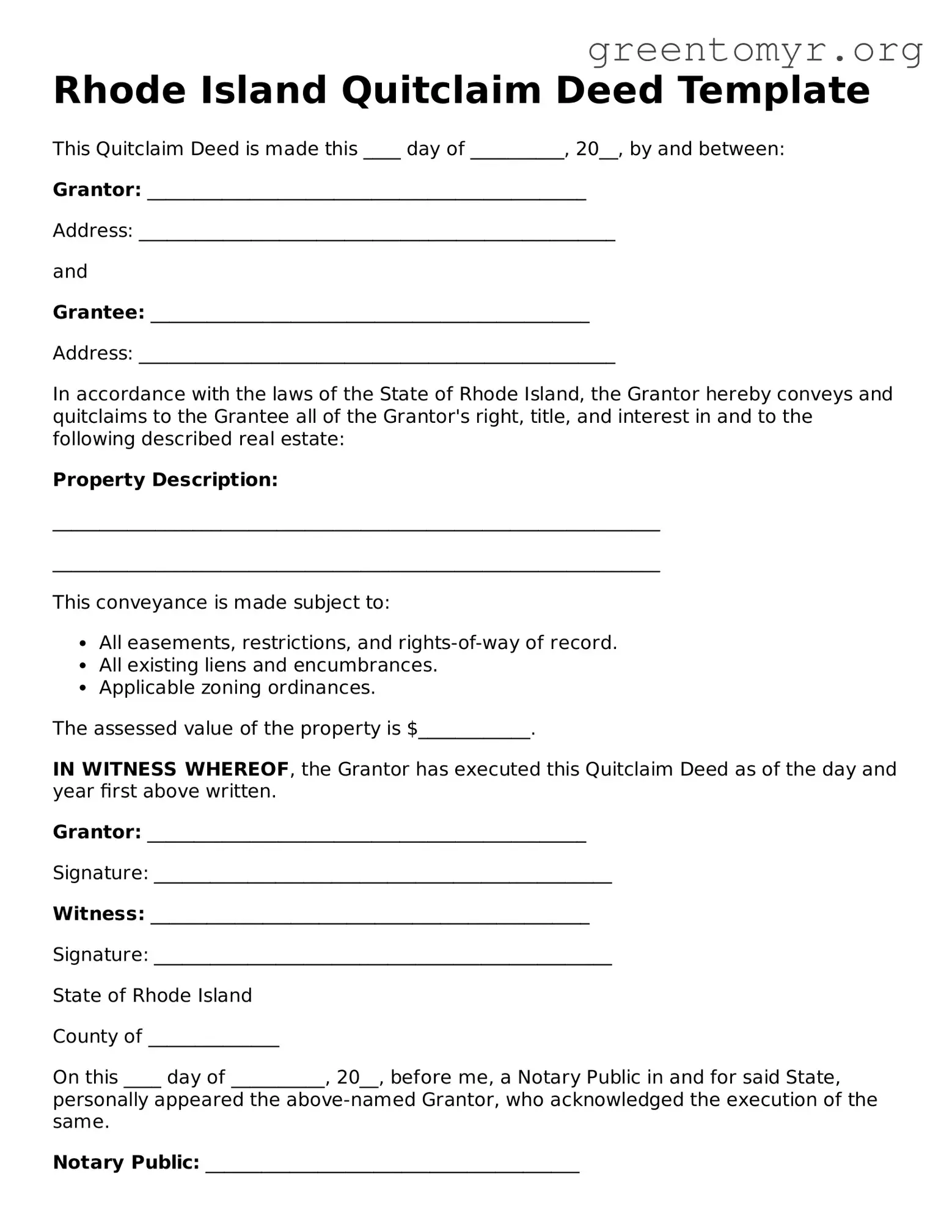Rhode Island Quitclaim Deed Template
This Quitclaim Deed is made this ____ day of __________, 20__, by and between:
Grantor: _______________________________________________
Address: ___________________________________________________
and
Grantee: _______________________________________________
Address: ___________________________________________________
In accordance with the laws of the State of Rhode Island, the Grantor hereby conveys and quitclaims to the Grantee all of the Grantor's right, title, and interest in and to the following described real estate:
Property Description:
_________________________________________________________________
_________________________________________________________________
This conveyance is made subject to:
- All easements, restrictions, and rights-of-way of record.
- All existing liens and encumbrances.
- Applicable zoning ordinances.
The assessed value of the property is $____________.
IN WITNESS WHEREOF, the Grantor has executed this Quitclaim Deed as of the day and year first above written.
Grantor: _______________________________________________
Signature: _________________________________________________
Witness: _______________________________________________
Signature: _________________________________________________
State of Rhode Island
County of ______________
On this ____ day of __________, 20__, before me, a Notary Public in and for said State, personally appeared the above-named Grantor, who acknowledged the execution of the same.
Notary Public: ________________________________________
My commission expires: ________________________________
